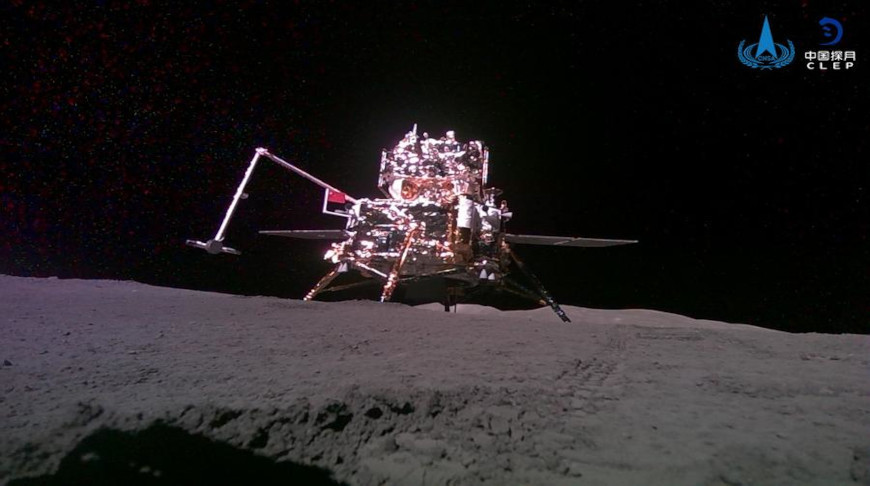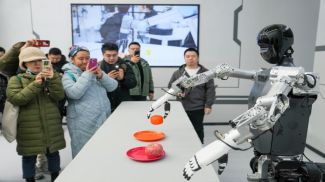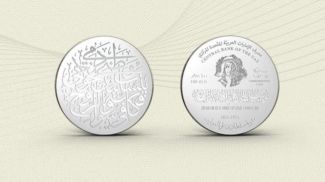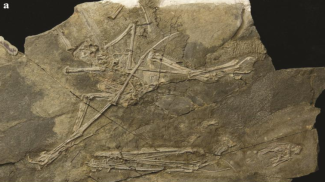
BEIJING, 14 June (BelTA - Xinhua) - A recent photo of the Chinese
Chang'e-6 probe's lander-ascender combination on the far side of the
moon has captured a historic moment in human lunar exploration.
The photograph was taken by a mini rover that was carried to the moon by the Chang'e-6 mission.
The probe has collected samples from the moon's far side and is currently in lunar orbit, awaiting the optimal time for its return journey.
The autonomous, intelligent mini robot was attached to the lander during the mission's journey to the moon and its moon landing, according to the China Aerospace Science and Technology Corporation (CASC), its developer.
After Chang'e-6 collected the samples on the far side of the moon, the mini rover autonomously detached from the lander, moved to a suitable position, selected an ideal angle for the photograph, and then captured the image.
At approximately 5 kilograms, the mini rover is much lighter than Yutu, China's first lunar rover, which was roughly equivalent in weight to two adults.
Despite its compact size, the mini rover is highly capable and has significantly enhanced autonomous intelligence, CASC said.
Its innovative action marks a significant stride forward in the development of autonomous intelligence in China's deep space exploration endeavors, promising a positive influence on future lunar exploration, CASC added.
The photograph was taken by a mini rover that was carried to the moon by the Chang'e-6 mission.
The probe has collected samples from the moon's far side and is currently in lunar orbit, awaiting the optimal time for its return journey.
The autonomous, intelligent mini robot was attached to the lander during the mission's journey to the moon and its moon landing, according to the China Aerospace Science and Technology Corporation (CASC), its developer.
After Chang'e-6 collected the samples on the far side of the moon, the mini rover autonomously detached from the lander, moved to a suitable position, selected an ideal angle for the photograph, and then captured the image.
At approximately 5 kilograms, the mini rover is much lighter than Yutu, China's first lunar rover, which was roughly equivalent in weight to two adults.
Despite its compact size, the mini rover is highly capable and has significantly enhanced autonomous intelligence, CASC said.
Its innovative action marks a significant stride forward in the development of autonomous intelligence in China's deep space exploration endeavors, promising a positive influence on future lunar exploration, CASC added.













